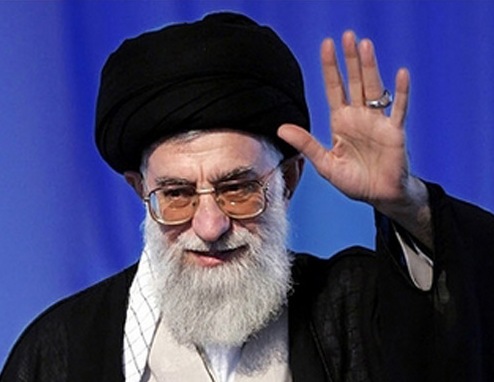ROUNDUP: Iran rejects Obama's offer until real change observed
 Tehran - Iran's Supreme Leader Ayatollah Ali Khamenei on Saturday rejected an offer by US President Barack Obama to open a new era in relations until Tehran could see real changes in US policies.
Tehran - Iran's Supreme Leader Ayatollah Ali Khamenei on Saturday rejected an offer by US President Barack Obama to open a new era in relations until Tehran could see real changes in US policies.
"The Iranian nation can neither be tricked [by the messages] nor threatened. The changes claimed by the US should be real and not just in rhetoric," Khamenei said.
"The new US president sends us a Persian New Year greeting message but in the same accuses us again to support terrorism and to be after nuclear weapons," the supreme leader said in a televised speech in the city of Mashad in north-eastern Iran.
"He offers us his hand with a velvet glove under which, however, might be a cast-iron hand," he added.
"We will not accept any offer for negotiations which goes together with force ... we will see and if you [President Obama] really change, then we will change as well. But the aims and not just the tactics should be changed," Khamenei said.
The cleric, in line with Iran's constitution, has the final say on all state affairs.
Obama, in a video message on the occasion of the Persian New Year, said Friday the United States was committed to engagement, not threats, in its pursuit of diplomacy.
The US president said it could not be a one-sided effort, suggesting the people of Iran also "have a choice" about whether they take their "rightful place in the community of nations."
"That place cannot be reached through terror or arms but rather through peaceful actions that demonstrate the true greatness of the Iranian people and civilization," Obama said in a video message broadcast by the Voice of America's Persian News Network.
Khamenei accused Obama of using "the same rhetoric" against Iran like his predecessor George W Bush.
"The new US administration says it wants to forget the past but the Iranian nation cannot forget the past so easily," he added.
Khamenei said that since the 1979 Islamic revolution, the US has followed an antagonistic and hostile approach towards Iran's Islamic republic such as freezing Iranian assets, supporting former Iraqi leader Saddam Hussein in the 1980-88 war and downing an Iranian passenger plane in 1988.
"More than 300,000 Iranian forces were killed in the [Iran-Iraq] war supported by the US, and 290 innocent passengers were killed after the US shot down our passenger plane and the officer in charge later even received a medal by the US president. How can a nation forget these incidents," the leader said.
He further blamed the US for having caused insecurity in Iran's neighbourhood by waging wars in Afghanistan and Iraq "with the aim of solely filling the pockets of its own armament companies."
"For almost three decades the US is imposing sanctions on us just because this nation wants to maintain its identity and independence," Khamenei said.
In Iran's political system, not the president but the supreme leader will decide on strategic issues such as resuming ties with the US.
Yet, observers believe that despite the critical remarks by Khamenei, Iran would still take the chance to improve ties with the US after three decades of diplomatic estrangement, initially through bilateral cooperation in Afghanistan and Iraq.
Foreign Minister Manouchehr Mottaki on Friday indicated during a visit to Afghanistan that Iran would attend the Afghanistan conference March 31 in The Hague.
"Iran has constantly played a positive and constructive role in aiding Afghanistan, and Iran's policy has always been playing a part in reaching solutions for Afghanistan," Mottaki said.
US Secretary of State Hillary Rodham Clinton said last week that "it was expected that Iran would be invited" to the conference. (dpa)